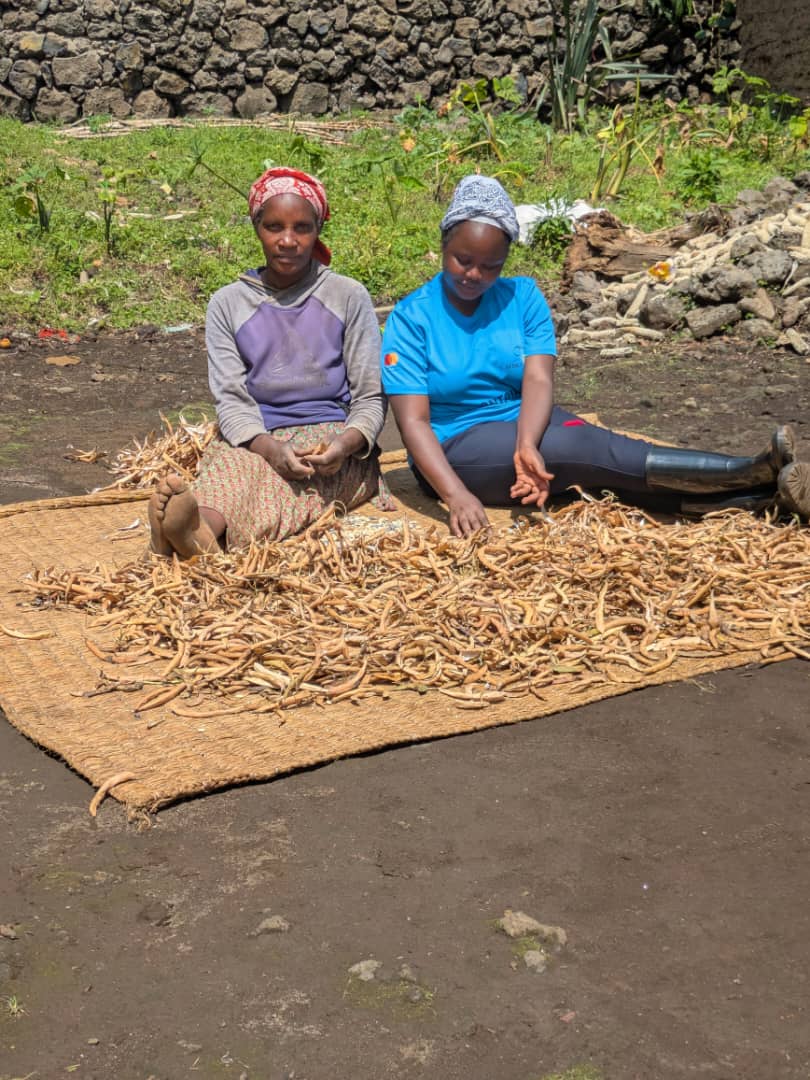“Muri kumva?” Are you hearing? “Murakora?” Are you working?
These were some of the first greetings I heard in Kinigi. At first, I thought someone was checking if I could hear them, but I soon learned it is simply how people say hello here. The reply is “Yego turi kumva,” yes we are hearing. For “Murakora,” the answer is “Yego turakora,” yes we are working. These words, rooted in listening and working, carry a poetry of their own. They remind me that Kinigi is a place where people live with open ears, open hands, and open hearts.
Most people think of potatoes when they hear Kinigi, famous across Rwanda for their taste and abundance. But Kinigi is more than potatoes. It is a living, breathing land at the foot of volcanoes, where clouds rest gently on mountain peaks and hearts are as warm as the fires in kitchens.
The first morning I woke up in Kinigi, the crisp air greeted me. Unlike many other regions of Rwanda, Kinigi has the coolest climate, and I felt it immediately. As I stepped outside, the volcanoes rose above the horizon, their peaks partly hidden by clouds. Living so close to Volcanoes National Park, home of the mountain gorillas, felt like a dream. Though the air was cold, my host family’s warmth made me feel at home immediately.
Our mornings were filled with simple routines sweeping the compound, washing dishes, and preparing meals. Laughter and stories turned daily chores into joyful moments of connection.
One of the most memorable experiences was seeing pyrethrum for the first time. My host family cultivates it, like many others in Kinigi, to make insecticide. Walking through the plantation, I was struck by the beauty of white flowers standing tall against the green hills. My host mother patiently explained how important pyrethrum is, both as a source of income and as part of the community’s identity. Something I had never seen before was such a central part of life here.
After chores, I would visit Rurembo village, where I serve, greeting community members in their homes and slowly integrating into daily life. In the gentle pace of the village, I learned my first lessons in service not in offices or meetings, but in the hands of women at work.
One woman peeling beans shared her longing to join the CorpsAfrica elderly savings group she admired from afar. Her words carried hope and gentle ache. Another busy harvesting pyrethrum welcomed me to work alongside her. As we labored together, she spoke of the power of unity and her eagerness for what we could build. “We are ready for what you bring, young lady,” she said, wiping sweat from her brow. “We only need someone to walk with us.”
When it was time to move fully into the community I serve, it felt natural. The lessons of hospitality from my host family guided me, and the friendships I had begun in the village made the transition smooth.
The day I left my host family’s house, my host mother accompanied me to my rental home. I looked back at the house, now familiar and dear. Her face, full of kindness, is a memory I will carry with me. As we walked, community members greeted us with “Muri kumva?” and we replied, “Yego turi kumva.” At that moment, I knew this was my purpose.
I arrived in Kinigi thinking of potatoes. Now, each day, I think of people their laughter, their strength, and their greetings that carry me forward. The land may be cold, but it has warmed me in ways I never imagined.
Every day in Kinigi begins with greetings: “Muri kumva?” “Murakora?” And every day I answer not just with words, but with my heart: “Yego turi kumva, yego turakora.” Service here is not spoken, it is lived.
Service begins in listening, in working side by side, and in walking together. When hearts are open and hands joined, even the coldest land can feel warm, and every greeting carries purpose.

